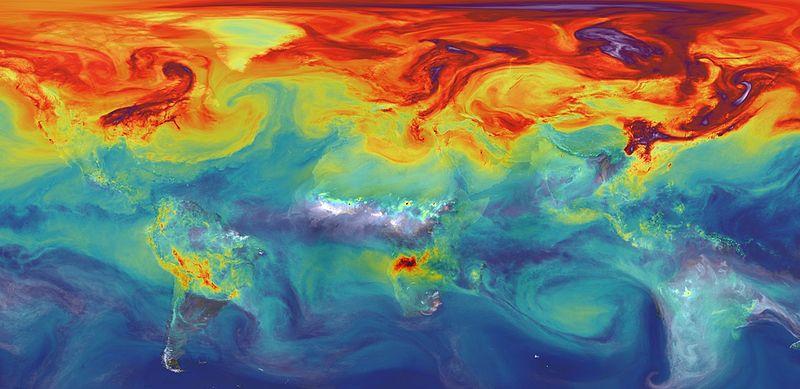The Science Media Centre features observations by climate change scientist James Renwick on National’s newly announced position on climate change policy. Commentators at Point of Order have expressed an opinion, too.
Climate change is not a partisan issue and the need to take big steps to reduce emissions is urgent, climate scientist James Renwick writes on The Spinoff. So the opposition’s support for a Climate Change Commission is very welcome.
The SMC gives us an excerpt (but you can read in full ):
In climate policy-land, things are all go here in New Zealand. The coalition government has got its Zero Carbon Bill out for public consultation, no new offshore oil exploration permits will be issued, and the Climate Change Commission is being set up. And now the leader of the opposition National Party, Simon Bridges, has come out in support of the Climate Change Commission and is looking for cross-party agreement on climate policy.
Wow. What a difference a year (and an election) makes. Not too long ago, the National government was unsupportive of the idea of a commission, was disinclined to shift climate change policy much, and then prime minister Bill English seemed pretty lukewarm about the whole climate change thing in general. Wherever Simon Bridges’ new passion for climate change action has come from, it is very welcome. Climate change is not a partisan issue, and the need to take significant action to reduce emissions is urgent. If all parties in parliament can agree on a way forward, there is a lot of hope that we’ll see meaningful and long-lasting policies implemented that genuinely reduce our greenhouse gas emissions.
So, this is a big deal.
You can keep reading here…
Point of Order quotes Bridges as saying climate change is the most significant environmental issue for NZ. “We need to deal with it as an important long-term issue and provide certainty on it”.
The blog goes on to say:
On the face of it Bridges seems to be departing from National’s previous line on climate change. But he’s quick to point out it was the National govt which signed NZ up to the Paris Climate Accord.
“I did, actually, as Associate Climate Minister, with Tim Groser… What we’re saying is we are stepping up on the framework that’s enduring. We need to be practical, have sensible environmental solutions. We don’t want to see the disruptive damage to the economy quickly.We don’t want to see real costs imposed on hard-working Kiwi households overnight.
“But what we will do, just like I think this government will as well, is we’ll take the advice from that climate commission, we’ll be accountable in terms of how we decide on the advice”.
To a question on Q&A from Corin Dann, whether under National there would be a return to the formula of more intensive dairy farming, big irrigation, driving more production, Bridges responded:
“I think certainly we wouldn’t want to see significantly more cows. I think the reality is what we have got to do… we’ve got to invest a lot more in science and innovation and technology to get those solutions. And then you might start to be able to do some of the things that we were talking about, which is have an ETS that begins to bite”.
So what should we make of this?
Point of Order considers things through a political prism:
Bridges’ call for an all-party approach to climate change has a political subtlety about it which may have escaped those whose focus has largely been confined to his appearance, his diction or his hair-do.
How can his call for bipartisanship on climate change be refused? If either Labour or the Greens turn it down, it makes each look politically inept, even cheapskate (as if we haven’t seen already how politically inept some ministers are)?
And what about the acting PM? How statesmanlike would it be if he refused to join the party on climate change?.
The danger in an all-party approach to climate change is pointed in the direction of the Green Party. It’s the issue which attracts votes to them from middle-of-the-roaders, and even some who might otherwise tick National.
But if National is as active on climate change as everyone else, then why vote for the Greens (many of whose other policies are so far left that even Labour won’t accept them) ?
It could pull back crucial support from the centre. In that case Bridges may prove to be a lot smarter, politically, than so far has been recognised.












